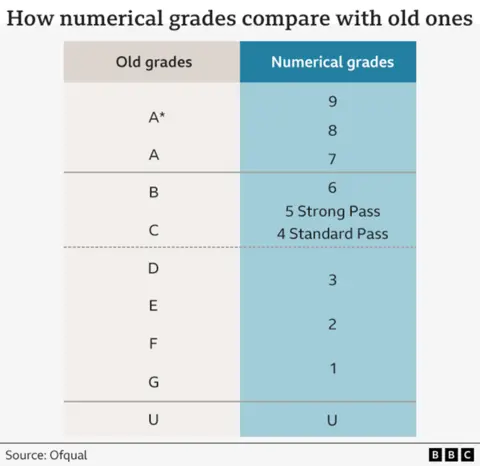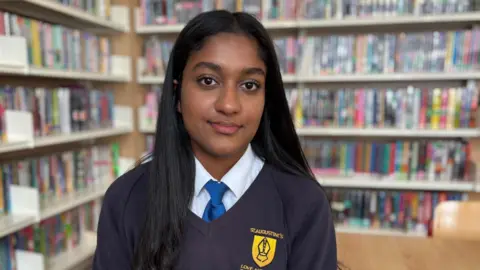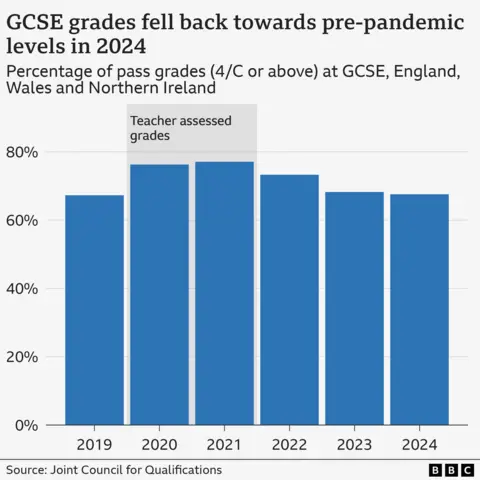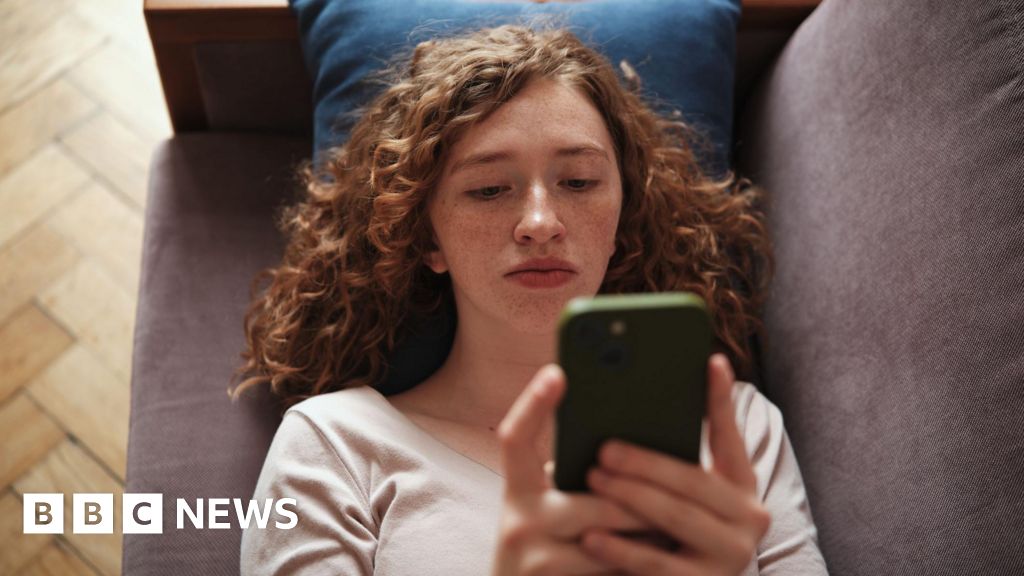 Getty
Getty
Pupils in England, Wales and Northern Ireland will receive GCSE, BTec Tech Awards and other Level 2 results on Thursday.
The GCSE pass rate is expected to be broadly similar to 2024, after years of flux during the Covid pandemic.
Last year, it fell for a third year running.
Students have also been warned they could face more competition for places at sixth form colleges this year.
Bill Watkin, head of the Sixth Form Colleges Association, said there were more 16-year-olds in the population and sixth form colleges had grown in popularity.
He said some had managed to increase capacity and would have spare places, but added that others were “almost certainly going to have to turn some young people away because they are oversubscribed”.
Lee Elliot Major, professor of social mobility at the University of Exeter, said competition to get into top sixth forms “will be fiercer than ever”, adding that fears over VAT being added to private school fees may drive more families to seek out places in the state sector.
But Paul Whiteman, general secretary of the NAHT school leaders’ union, said there was a “wide range” of other options for teenagers, such as school sixth forms and further education colleges.
About 170,000 students are due to get results for BTec Tech Awards, BTec Firsts and BTec Level 2 Technical courses, while about 110,000 will receive results for Cambridge Nationals.
The pass rate for National 5, Higher and Advanced Higher exams in Scotland rose across the board this month.
Top A-level results rose again last week – with 28.3% of all grades across England, Wales and Northern Ireland marked at A* or A.

Most pupils getting results this week were in Year 6 when the first Covid lockdown was announced in March 2020, and started secondary school learning in “bubbles”.
Jiya, a pupil at St Augustine’s Catholic Academy in Scarborough, wants to become a dentist – and hopes she’ll get the grades she needs to start A-levels at Scarborough College next month.
But she said it was bittersweet to be leaving the friends that she met during the Covid pandemic.
“I think when I first came in Year 7 I was probably really nervous,” she said.
“I have found my people, my friends, and they have helped me become more confident.”

Jiya says she hopes her grades will be enough to make her next step towards a career in dentistry
Education Bridget Phillipson said the teenagers who moved from primary to secondary school at the height of the pandemic showed “remarkable resilience despite the disruption to those crucial years of education”.
She added that Level 2 results would also “expose the inequalities that are entrenched in our education system”.
Last year, 67.6% of all GCSE entries were graded 4/C or above.
Regional divides grew in England, with the difference between pass rates in the highest- and lowest-performing regions widening.
This is the second year that grading has returned to pre-pandemic standards across all three nations.
The proportion of GCSE passes rose in 2020 and 2021 when exams were cancelled and results were based on teachers’ assessments.
That was followed by a phased effort to bring them back down to 2019 levels.
The return of grading to 2019 standards for a second year running means there will be less emphasis on how grades compare to standards before Covid, and more on how they compare to last year.

Education Secretary Bridget Phillipson criticised the country’s education system ahead of GCSE results day, writing in the Telegraph: “While this country is a good place to go to school, good isn’t good enough.
“The images on television and the headline statistics we’ll see this week mask the reality of a system that works for some children – even most children – but continues to let down tens of thousands more.”
Phillipson highlighted that “in 2024 only 19 per cent of white British, working class children achieved a strong pass in maths and English GCSE” and said the statistic looks almost identical to 2017.
“It’s appalling,” Phillipson wrote, adding “it’s not just the life chances of those children that are being damaged – it’s also the health of our society as a whole.”
In England, pupils who don’t get at least a grade 4 in GCSE English and maths are required to continue studying for it alongside their next course, whether it’s A-levels, a T-level, or something else.
The Department for Education (DfE) says pupils should retake the exam when they – and their school or college – think they are ready.
GCSE English and maths resits take place in November and May or June.
Most pupils go into their school or college to collect their results, but this year tens of thousands will be sent their results in an app.
The DfE is trialling the Education Record app with 95,000 students in Manchester and the West Midlands, ahead of a national rollout.
Ministers said they hoped it would save money for college admissions teams, while school leaders said students and schools would need “seamless support” to ensure the app works properly.
Students involved in the pilot will still be able to go to school to get their paper results.
Additional reporting by Hayley Clarke and Emily Doughty

